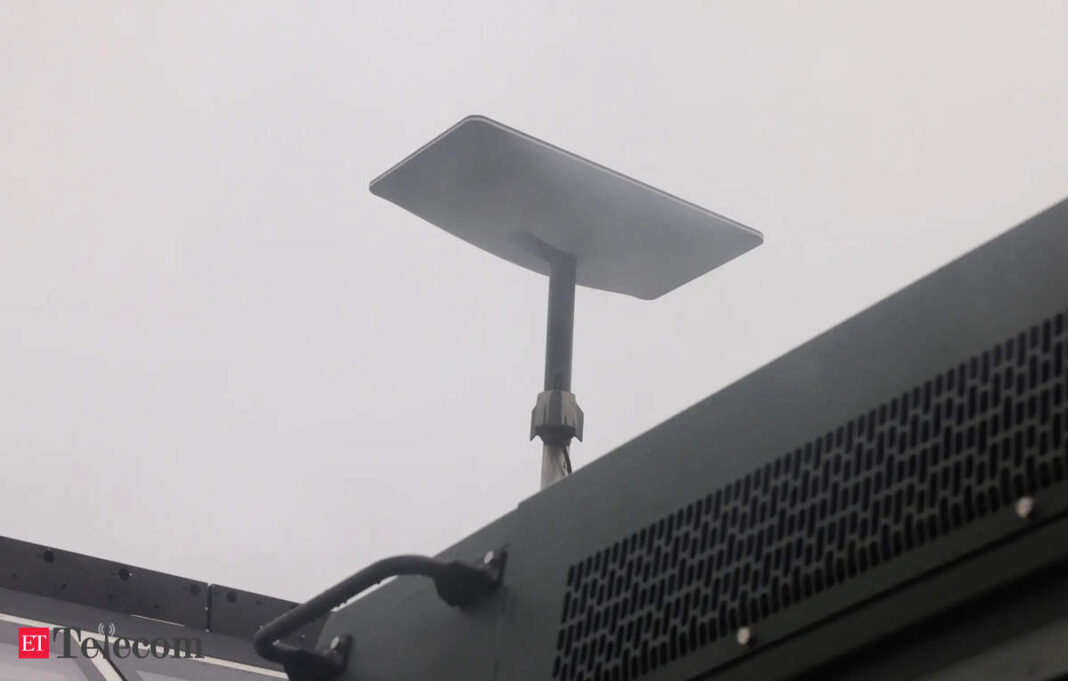In Short:
Global satellite companies like Starlink and Amazon Kuiper are urging India’s government to adopt clear policies, lighter regulations, and lower fees for providing satellite internet in remote areas. They stress that hefty costs hinder affordable service delivery. While Starlink has thousands of satellites covering over 100 countries, both companies await licenses to operate in India, currently held by Reliance Jio and OneWeb.
Global satellite communication companies such as Starlink and Amazon Kuiper are advocating for a favorable regulatory framework, advocating for predictable policies, light-touch regulations, and reduced spectrum prices from the Telecom Regulatory Authority of India (TRAI) and the Central government. Their aim is to facilitate broadband-from-space services in remote areas where traditional communication infrastructure is not viable.
Call for Predictable Policies
K. Krishna, Business Head for Asia Pacific at Amazon Kuiper, emphasized the necessity of predictable policy during a satellite spectrum regulatory session at the ongoing India Mobile Congress (IMC) 2024. He stated, “Without a predictable policy, these multi-billion dollar investments cannot be made. There should be a light touch regulation. Do not view satellite services as a golden goose. We need manageable regulatory and spectrum fees to reach the last customer in remote regions.”
Collaborative Efforts with Local Operators
David Goldman, Head of Satellite Policy at SpaceX, articulated how Starlink collaborates with local telecom operators who hold licensed spectrum to provide satellite communication services. He explained, “Once we have a mobile partner, they will inform us about the available spectrum, allowing us to integrate into their network, thereby enhancing the reach of mobile services.”
Current Satellite Deployments
Billionaire Elon Musk’s Starlink currently operates approximately 7,000 satellites in low-earth orbit (LEO) and serves over four million customers across more than 100 countries. Conversely, Amazon has committed $10 billion to its Kuiper project, intending to launch a constellation of 3,232 satellites by 2029. Goldman also noted that Starlink is launching a separate constellation dedicated to direct-to-cell connectivity, having already deployed 200 satellites.
Licensing Status
As of now, both Starlink and Kuiper are still awaiting licenses to operate their satellite broadband services in India, with only Reliance Jio and OneWeb having received the necessary approvals.
Government’s Commitment
This past Tuesday, India’s Union Communications Minister Jyotiraditya Scindia announced that satellite service spectrum would be allocated administratively at a cost determined by the telecom regulator. Meanwhile, AK Lahoti, Chairman of TRAI, discussed the significant advancements in satellite communications that enable reliable and cost-effective broadband services in challenging terrains.
Integrating Satellite and Terrestrial Systems
In his address, Lahoti highlighted the potential for the combination of satellite systems and terrestrial networks to provide consistent connectivity globally, particularly in times of natural disasters when traditional networks are compromised. He also mentioned that TRAI has recently proposed a new framework under the Telecommunications Act, 2023, enabling authorized entities to provide various telecommunication services, including satellite-based communications, across India.
Nonetheless, he stated that further discussions are required to ensure the successful integration of terrestrial networks with non-terrestrial networks (NTN).





